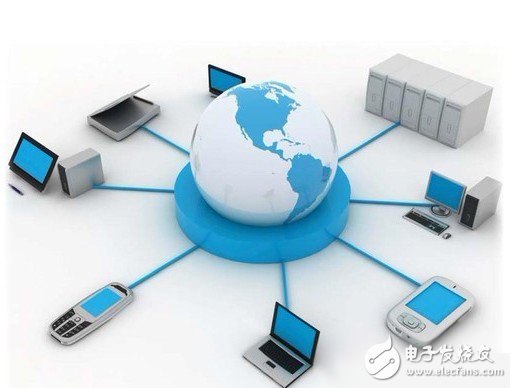The 5th China Internet of Things Conference recently held news that the scale of the Internet of Things industry has exceeded 600 billion yuan in 2013 and is expected to be close to one trillion yuan in 2015. However, the upstream chip industry, which is the foundation of the Internet of Things, may not be able to keep pace with the development of the Internet of Things. A number of chip design and manufacturing companies have reflected that domestic chip R&D and design capabilities are limited, and they face strong competition from foreign peers. Domestic chip makers will find it difficult to obtain and digest the benefits brought by the Internet of Things.

IoT chip "short board"
The Internet of Things is an important point of view in this year's capital market. The development of the Internet of Things is expected to directly drive the development of the chip industry. The manufacture and application of IoT-related equipment such as IC cards, electronic tags, and mobile POS machines are all dependent on the upstream chip industry. Donghai Securities believes that the Internet of Things will become a new engine for the development of chips and electronic components.
However, as the chip manufacturing upstream of the industry or will become the "short board" of the rapid development of the Internet of Things, the chip industry may be difficult to digest the benefits brought about by the development of the Internet of Things. According to many chip manufacturers, the current domestic chip R&D design capability is relatively limited. Domestic chips still rely heavily on imports, and domestic chip design and manufacturing will be difficult to keep up with the development trend of the Internet of Things. In the future, the development of the Internet of Things will continue to break through industrial applications, but the upstream infrastructure industry relies heavily on the “old situation†of foreign technology.
According to data from the Ministry of Industry and Information Technology, in 2013, China’s imports of chips reached US$231.3 billion, up 20.5% year-on-year, higher than China’s crude oil imports of US$219.6 billion over the same period. An insider of a chip manufacturing company said that the current domestic chip R&D design capability still lags behind foreign standards. Many domestic chip manufacturing companies rely on subsidies and other supporting policies to survive, and it is difficult to meet the requirements of the IoT development for the chip industry.
The above-mentioned person said that the rapid development of the domestic Internet of Things may be the same as the development of computers and mobile phones. The core chip technology will be mastered by foreign giants. What domestic companies can do is only the outer edge of the product shell. After the domestic IoT-related chip technology, it will face competition in price and quality of similar foreign mature products. The development of the Internet of Things is difficult to fall into the hands of domestic chip manufacturers.
Chip makers have to deal with
Faced with the relatively clear development momentum of the Internet of Things and the interest space for surviving risks, the countermeasures adopted by chip manufacturers are not the same.
Shanghai Beiling [-1.28% Capital Research Report], a domestic chip design and manufacturing enterprise that earlier involved in the concept of Internet of Things, announced on January 29 that the company’s management team considered the development of product business and industry chain, in order to concentrate the main business and upgrade the company. Profitability, the company intends to sell all 85.33% of the equity of Shanghai Alfadi Smart Label System Technology Co., Ltd. It is reported that Shanghai Alfadi Smart Label System Technology Co., Ltd. was established in 2004, mainly engaged in smart label system technology development, software development, system integration, and is considered to be an important carrier for Shanghai Belling to expand the Internet of Things business.
Beijing Junzheng [-1.18% Fund Research Report], which is mainly engaged in chip design, announced on March 29 that it changed its fundraising project and changed the balance of investment funds. The company intends to change the fund-raising project “Embedded Processor Chip Technology Transformation Project for Portable Education Electronics†to “IoT and Intelligent Wearable Device Core Technology and Product R&D Projectâ€, before the company’s fundraising project has invested in the remaining funds. After the change, the total investment of the project is nearly 140 million yuan. According to the company, the changed fundraising project will be mainly used for IoT and smart wearable device chip projects.
Industry analysts pointed out that it is reasonable for chip design manufacturers to take different actions in the Internet of Things. The Internet of Things is still more at the conceptual concept and macro design level. Upstream chip manufacturers have different expectations for the development of the Internet of Things. But it is undeniable that if you want to seize the benefits brought by the Internet of Things, domestic chip manufacturers need more work on the R&D and design of products.
As one of the clean and renewable energy source, solar energy is extensively distributed on earth. Wherever there is sunshine, solar power system could come into play to supply power in most of time.
With installed solar power system, the solar panels of the system are able to absorb sunshine and turn the energy into electricity which then passes through the inverter for the power supply of your home.
What is A Solar Battery?
A solar battery is an additional component that helps store excessive energy generated from solar panels for use at a later time. Adding solar batteries to a solar system creates an innovative solar plus storage pattern and improves the independence of the power supply."Solar + Storage" is a wonderful technology. With a solar battery, you can enjoy the benefits of solar energy in a time when the panels are not producing energy. A solar battery can make grid independence possible and avoid paying high energy costs at peak time.
During a sudden power blackout or an emergency situation, it is a solar battery that can make a difference for your home compared to the surrounding neighborhood. It can be used as backup power for your family and offer a comfortable and safe home with lights on. A solar battery is able to back up the essential loads such as lighting and main electronic appliances during a power failure.
Battery storage is the next big thing in renewable energy. Companies like UFO POWER are developing batteries that can be installed with solar panels to create "solar-plus-storage" systems for your power supply.
Applications

â–² Lithium Battery Advantage
> Highly durable and reliable; No spillage or leakage of liquids
> Heavy duty terminals
> Resistant to vibrations
> Improved cycle life performance
> Extremely lightweight
> High energy efficiency
â–² Electrolyte
Flame retardant Electrolyte: Our cells are manufactured with our flame retardant additive in our electrolyte.
â–² Protection Function
> Over Discharge Detection
> Over Current Detection
> Short Circuit Detection
> Temperature Protection Function
> Balance Function
If you`re looking for smaller solar power solutions, contact us now.
Solar Battery,Home Battery For Backup,Solar Battery Light,Solar Lifepo4 Battery
ShenZhen UFO Power Technology Co., Ltd. , https://www.ufobattery.com